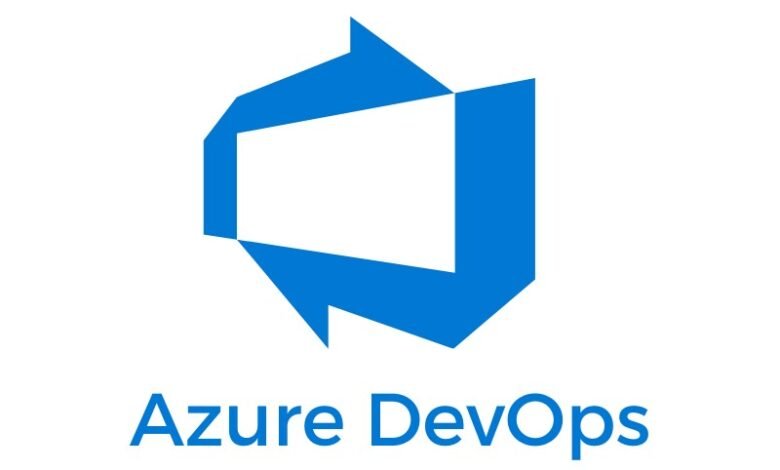What Can You Do After Azure DevOps Training?

Introduction
Azure DevOps is a comprehensive platform that integrates development and operations, streamlining the software development lifecycle. With its wide array of tools and services, Azure DevOps supports project management, version control, continuous integration, and delivery, making it an essential skill set for modern software professionals. Completing Azure DevOps Training empowers individuals with the knowledge and expertise needed to foster collaboration, automate processes, and improve product quality. As businesses increasingly adopt DevOps practices, the demand for professionals skilled in Azure DevOps continues to grow, paving the way for diverse career opportunities in the tech industry.
All About Azure DevOps
Azure DevOps is a cloud-based suite of development tools and services provided by Microsoft to support the software development lifecycle (SDLC). It integrates various processes such as planning, developing, testing, and deploying applications, enhancing collaboration among development and operations teams.
Key Components
- Azure Boards: This tool enables agile project management with features like Kanban boards, backlogs, and sprint planning, helping teams track work and progress efficiently.
- Azure Repos: A version control system that supports both Git and Team Foundation Version Control (TFVC), allowing teams to manage code repositories, conduct code reviews, and ensure code quality.
- Azure Pipelines: A continuous integration and continuous delivery (CI/CD) service that automates building, testing, and deploying applications across multiple platforms and environments. It supports various languages and integrates with popular services like GitHub and Docker.
- Azure Test Plans: A tool for managing test cases, executing manual tests, and capturing feedback, facilitating quality assurance in the development process.
- Azure Artifacts: This service allows teams to create, host, and share packages, managing dependencies efficiently for different projects.
Benefits
- Collaboration: Azure DevOps promotes seamless collaboration among team members through integrated tools and services.
- Scalability: As a cloud service, it scales with the needs of the organization. Refer to the DevOps Course to learn more.
- Flexibility: Supports multiple programming languages and frameworks, making it suitable for diverse projects.
Thus, Azure DevOps is a comprehensive platform that enhances productivity, quality, and agility in software development.
What Can You Do After Azure DevOps Training?
After completing Azure DevOps Training, professionals can explore various career opportunities that leverage their skills in software development and project management.
Here are some potential paths:
1. DevOps Engineer
DevOps Engineers bridge the gap between development and operations teams, focusing on automation and improving the deployment pipeline. They use Azure DevOps tools to implement CI/CD practices, monitor systems, and optimize performance.
- Salary Insight: In India, the average salary for a DevOps Engineer ranges from ₹6,00,000 to ₹12,00,000 per annum, depending on experience and skills.
2. Cloud Engineer
Cloud Engineers design, develop and manage cloud infrastructure. With Azure expertise, they can implement solutions that enhance performance, scalability, and security in the cloud environment.
- Salary Insight: The average salary for a Cloud Engineer in India is around ₹7,00,000 to ₹14,00,000 per annum.
3. Site Reliability Engineer (SRE)
SREs focus on maintaining high service availability and reliability. They leverage Azure DevOps tools for monitoring, incident management, and performance optimization.
- Salary Insight: The average salary for an SRE in India typically ranges from ₹8,00,000 to ₹15,00,000 per annum.
4. Release Manager
Release Managers oversee the software release process, ensuring that new features and updates are delivered smoothly and efficiently. They utilize Azure DevOps to coordinate between development and operations.
- Salary Insight: The average salary for a Release Manager in India is approximately ₹9,00,000 to ₹16,00,000 per annum.
5. Automation Tester
With a focus on quality assurance, Automation Testers use Azure DevOps to develop automated testing scripts and frameworks. They ensure that applications function correctly and meet user requirements.
- Salary Insight: The average salary for an Automation Tester in India ranges from ₹4,00,000 to ₹10,00,000 per annum.
Thus, the Azure DevOps Course opens doors to various roles that enhance productivity and collaboration in software development. The demand for skilled professionals in these areas continues to grow, providing significant career advancement opportunities and competitive salaries.
Here’s a table summarizing various job titles related to Azure DevOps training along with their average salary insights in India:
| Job Title | Average Salary (INR per annum) |
| DevOps Engineer | ₹6,00,000 – ₹12,00,000 |
| Cloud Engineer | ₹7,00,000 – ₹14,00,000 |
| Site Reliability Engineer (SRE) | ₹8,00,000 – ₹15,00,000 |
| Release Manager | ₹9,00,000 – ₹16,00,000 |
| Automation Tester | ₹4,00,000 – ₹10,00,000 |
Conclusion
In conclusion, completing Azure DevOps training equips professionals with valuable skills that can lead to various rewarding career paths in the tech industry. Positions such as DevOps Engineer, Cloud Engineer, Site Reliability Engineer, Release Manager, and Automation Tester are in high demand, offering competitive salaries and opportunities for growth. Azure DevOps is a comprehensive platform that combines development and operations to simplify the software development lifecycle.Azure DevOps, with its diverse set of tools and services, enables project management, version control, continuous integration, and delivery, making it a vital skill set for modern software workers. As organizations increasingly adopt DevOps practices to enhance collaboration and efficiency, the need for skilled individuals who can effectively implement these methodologies continues to rise. Investing in Azure DevOps training improves job prospects and positions professionals to thrive in a dynamic and evolving work environment.




